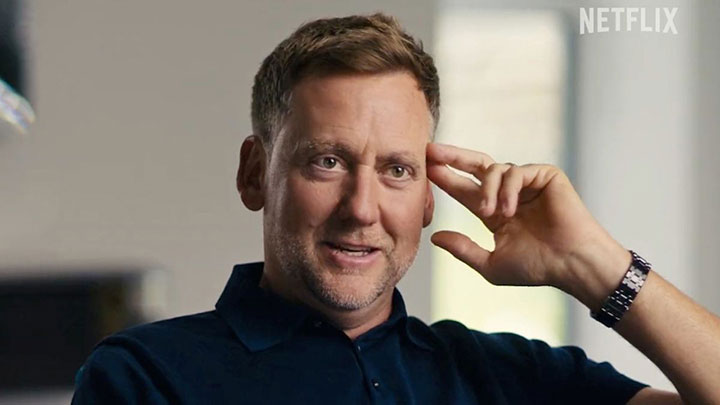
By Lindsay Steele
“Full Swing” (Netflix)
Genre: Documentary, Sports and Fitness

Rating: TV-MA (language, smoking)
Summary: “Full Swing” documents the lives of professional golfers on and off the course across a season of high-stakes competition during the PGA Tour. In the third episode, “Money or Legacy,” Ian Poulter debates whether a lucrative LIV Golf contract is worth giving up his PGA Tour card and facing public scrutiny.
Synopsis: The PGA golf season is now in full swing (pun intended), minus some familiar faces. Last year, the PGA Tour suspended 17 players — most notably Phil Mickelson, Dustin Johnson and Sergio Garcia — for their involvement in the controversial Saudi-backed LIV International Golf Series.
This new league is widely seen as an attempt to “sportswash” ongoing abuses committed by Saudi authorities. These atrocities include the oppression of women, violating the rights of migrant groups, criminalization of the LGBTQ lifestyle and the bombing of Yemen. The Public Investment Fund (PIF), controlled by Saudi Prime Minister and Crown Prince Mohammed Bin Salman, owns a reported 93% controlling share in LIV Golf. “While the kingdom hosts these glamorous events, the Saudi government has intensified the crackdown on peaceful dissent and ramped up executions,” Human Rights Watch reports on its website. “Many Saudi activists and dissidents remain on trial or in prison receiving long sentences and some tortured.”
So why would these PGA stars, and more than a dozen other players, want to leave their legacy behind to play in the controversial league? The third episode of Netflix’s “Full Swing” attempts to chip away at an answer.
On the surface, the answer seems obvious: guaranteed money. In order to make money at a PGA tournament, players must A) make the field and B) survive the cut. Poulter, a husband and father of four, laments the major milestones he missed because he was away at tournaments for which he may not have received compensation. Missing a cut and leaving a tournament unpaid is “the ultimate worst feeling you can personally have as a golfer,” he says.
Poulter worries that he is past his prime and is no longer able to pull in the money he once did. Membership in the LIV league would allow him to spend more time with his family while maintaining their lavish lifestyle — private jet included.
Just before viewers find out whether Poulter decides to join the controversial league, a journalist asks him whether there is anywhere he wouldn’t play, on a moral basis, if the money was right. After nervously sipping on a glass of water, he curtly answers, “I don’t need to answer that question.”
Ultimately, those who take the opportunity aren’t doing it because they agree with human rights violations. They do it because, to them, the ends justify the means. “These golfers are very much aware of the atrocities they are helping Saudi Arabia to hide,” says Brandel Chamblee, a Golf Channel analyst. Former PGA great and current LIV Chairperson Greg Norman acknowledges the 2018 murder of Saudi journalist Jamal Khashoggi even as he gamely brushes off such atrocities as “mistakes.”
The question might boil down to this: How can we convince ourselves to take the right road when the wrong road is paved with gold?
Discussion questions:
Have you ever done the wrong thing for what you thought was a good reason?
Did you ever come to regret that decision? Why or why not?
How can God’s grace help us when we’ve fallen short?
(Editor’s note: Lindsay Steele is a reporter for The Catholic Messenger. Contact her at steele@davenportdiocese.org or by phone at (563) 888-4248.)











